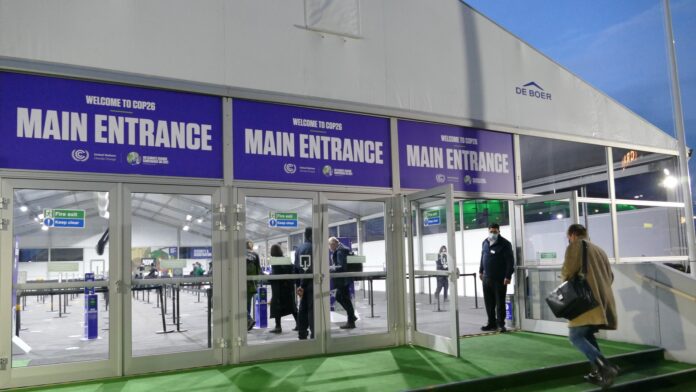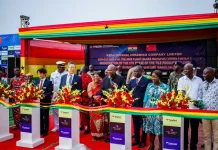WASHINGTON D.C., United States of America, October 2021/ — As the world convenes in Glasgow for the 26th United Nations Climate Change Conference of Parties (COP26), it is time to recognize Africa’s role in averting a climate disaster without compromising the continent’s growth and poverty reduction.
The world needs to transition away from fossil fuels. But access to electricity is a human right as enshrined in sustainable development goal 7 (https://bit.ly/3EgE5fm). Electric power is vital for any economy to advance, and relegating African countries to greater poverty is not the solution to the global climate crisis.
The world must transition away from the fuels that powered industrialization in Europe, the U.S., and Asia. Today, coal still accounts for up to 38 percent of electricity generation (https://bit.ly/3bdI7ZC) worldwide, with China, India, the U.S., and the EU remaining the world’s largest consumers of coal.
At the same time, international financing institutions are restricting investment in electric power projects in Africa to wind and solar on grounds of environmental concerns. Africa’s current energy demand is estimated at 700 TW (https://bit.ly/3biDFZM), which is 4,000 times the 175 GW of wind (https://bit.ly/3vRv61a) and solar (https://bit.ly/3pM6t58) capacity the entire world added in 2020. Africa cannot industrialize on wind and solar energy alone.
In sub-Saharan Africa, 12 million new people enter the workforce every year (https://bit.ly/3Bm3CCf). They cannot run successful businesses in the dark. Today, nearly 600 million Africans lack access to electric power (https://bit.ly/3bgFR3R), a number that the International Energy Agency (IEA) projects will actually increase (https://bit.ly/3ny4Xkj) by 30 million due to the COVID-19 pandemic. To create jobs for Africa’s burgeoning youth population, we need to find ways to power the continent’s industrialization.
Importantly, Africa bears the least responsibility for the world’s climate crisis but faces its most severe consequences. Forty-eight sub-Saharan African countries outside of South Africa are responsible for just 0.55 percent of cumulative CO2 emissions (https://bit.ly/3bdRQPA). Yet, 7 of the 10 countries (https://bit.ly/3Ek9YUu) most vulnerable to climate change are in Africa. Still, Africa will play a major role in solving the global crisis. The Congo Basin is the world’s second-largest rainforest and vital to stabilizing the world’s climate, absorbing 1.2 billion tons of CO2 (https://bit.ly/3jKjd8z) each year. Without the Congo Basin and the Amazon, the world would be warming much more quickly.
The global transition to renewable energy will mean exponentially scaling up the production of batteries, electric vehicles (EVs), and other renewable energy systems, which require Africa’s mineral resources. For example, the Democratic Republic of the Congo (DRC), accounts for 70 percent of the world’s cobalt, the mineral vital to battery production. Cobalt demand is expected to double by 2030 (https://bit.ly/3BiRfH6). Conversely, 84 million people (80 percent of the total population) in the DRC could still lack access to electric power in 2030 (https://bit.ly/3Bllop1). We believe that we can achieve the global emission reduction targets without constraining Africa’s development. To power Africa’s economic growth and prevent the worst consequences of climate change, we propose a four-point agenda for action:
Utilize the African Continental Free Trade Agreement (AfCFTA). The AfCFTA will create the world’s largest free trade zone by integrating 54 African countries with a combined population of more than 1 billion people and gross domestic product of more than $3.4 trillion (https://bit.ly/3CkoIlO). Africa’s commitment to lowering intra-African trade barriers can attract more private sector investment with larger, connected market opportunities.
Leverage green economic opportunities. Increased demand for electric vehicles, critical minerals, and renewable energy systems is an opportunity for Africa to capture larger portions of supply chains in the new green economy. Nations and firms can collaborate across borders to create a pipeline of bankable power projects to attract investment. Increasing local manufacturing and production capacity for resources, materials, and value-added products vital to green technology will create jobs locally.
Adopt just development finance. The large-scale power projects needed to industrialize economies are capital-intensive and often require investments from development finance institutions. Development finance institution funding should catalyze private sector resources. While we agree on the environmental and economic justification for not financing new coal-fired plants, they should not limit support for natural gas, hydro, and geothermal power generation projects. This policy creates an unjust burden on those economies that require a variety of sources to increase access and build resilience into their power infrastructure. It is hypocritical of the EU, the U.S., and China to utilize fossil fuels while effectively denying others the means to lift themselves out of poverty.
Embrace proportionate responsibility. China, the EU, and the U.S. emit over 40 percent of total global greenhouse gases (https://bit.ly/3BkszxT), while all of Africa emits 7 percent. Prioritizing the transition to renewables and imposing higher emission reduction requirements in the EU, U.S., and China will ease the burden on those nations that still need a variety of power generation methods to increase energy access.
The world is facing an existential climate crisis and must come together in solidarity to stave off the potentially devastating impacts, but leaving 600 million Africans in the dark is not an option. We must avert a climate disaster and expand energy access in Africa at the same time.
Distributed by APO Group on behalf of The Brookings Institution.










































